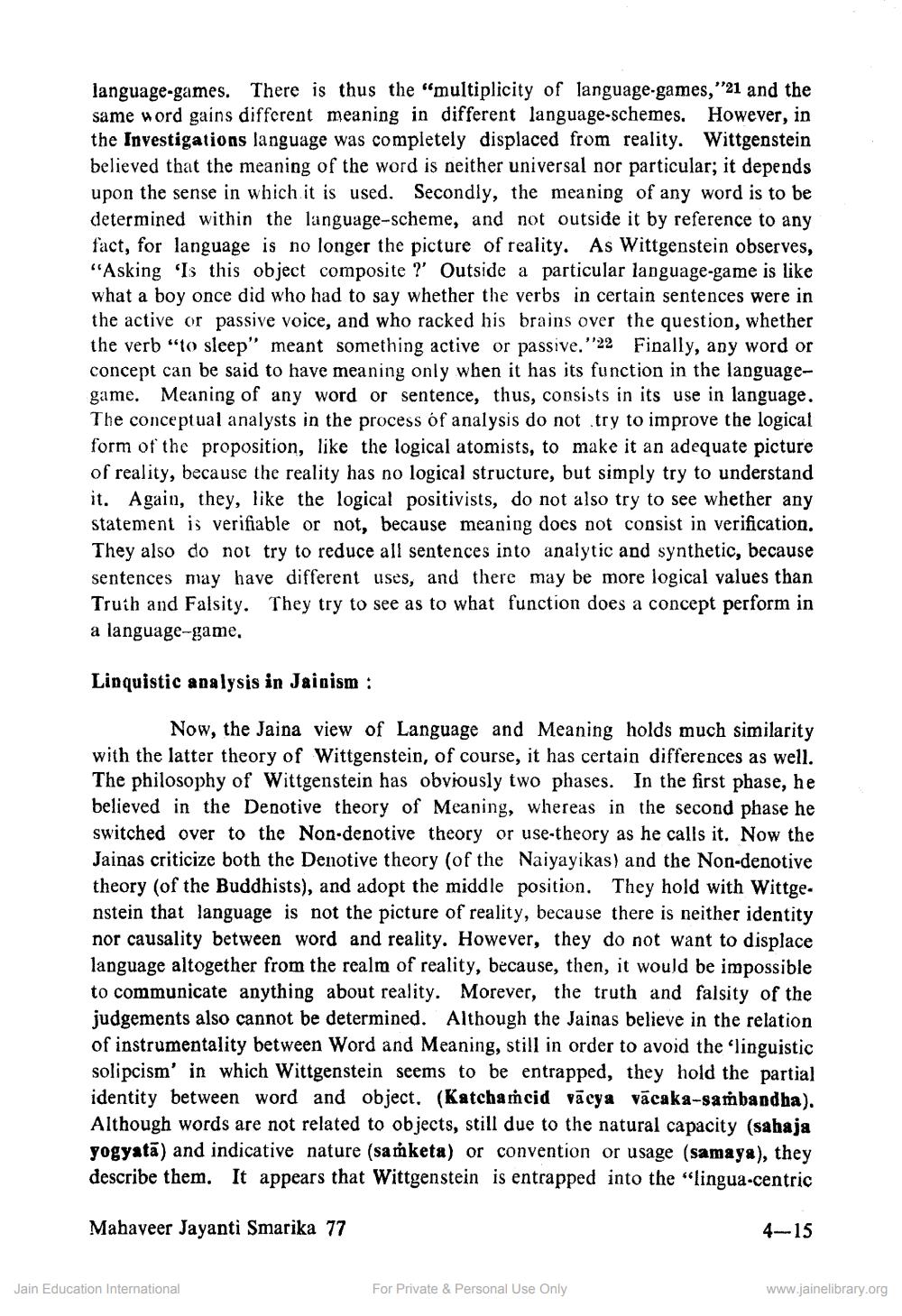________________
language-games. There is thus the "multiplicity of language-games,"21 and the same word gains different meaning in different language-schemes. However, in the Investigations language was completely displaced from reality. Wittgenstein believed that the meaning of the word is neither universal nor particular; it depends upon the sense in which it is used. Secondly, the meaning of any word is to be determined within the language-scheme, and not outside it by reference to any fact, for language is no longer the picture of reality. As Wittgenstein observes, "Asking 'Is this object composite ? Outside a particular language-game is like what a boy once did who had to say whether the verbs in certain sentences were in the active or passive voice, and who racked his brains over the question, whether the verb "to sleep" meant something active or passive.''22 Finally, any word or concept can be said to have meaning only when it has its function in the languagegame. Meaning of any word or sentence, thus, consists in its use in language. The conceptual analysts in the process of analysis do not try to improve the logical form of the proposition, like the logical atomists, to make it an adequate picture of reality, because the reality has no logical structure, but simply try to understand it. Again, they, like the logical positivists, do not also try to see whether any statement is verifiable or not, because meaning does not consist in verification. They also do not try to reduce all sentences into analytic and synthetic, because sentences may have different uses, and there may be more logical values than Truth and Falsity. They try to see as to what function does a concept perform in a language-game.
Linquistic analysis in Jainism :
Now, the Jaina view of Language and Meaning holds much similarity with the latter theory of Wittgenstein, of course, it has certain differences as well. The philosophy of Wittgenstein has obviously two phases. In the first phase, he believed in the Denotive theory of Meaning, whereas in the second phase he switched over to the Non-denotive theory or use-theory as he calls it. Now the Jainas criticize both the Denotive theory (of the Naiyayikas) and the Non-denotive theory (of the Buddhists), and adopt the middle position. They hold with Wittge. nstein that language is not the picture of reality, because there is neither identity nor causality between word and reality. However, they do not want to displace language altogether from the realm of reality, because, then, it would be impossible to communicate anything about reality. Morever, the truth and falsity of the judgements also cannot be determined. Although the Jainas believe in the relation of instrumentality between Word and Meaning, still in order to avoid the 'linguistic solipcism' in which Wittgenstein seems to be entrapped, they hold the partial identity between word and object, (Katchamcid vācya vācaka-sambandha). Although words are not related to objects, still due to the natural capacity (sahaja yogyatā) and indicative nature (saṁketa) or convention or usage (samaya), they describe them. It appears that Wittgenstein is entrapped into the "lingua-centric
Mahaveer Jayanti Smarika 77
4-15
Jain Education International
For Private & Personal Use Only
www.jainelibrary.org




